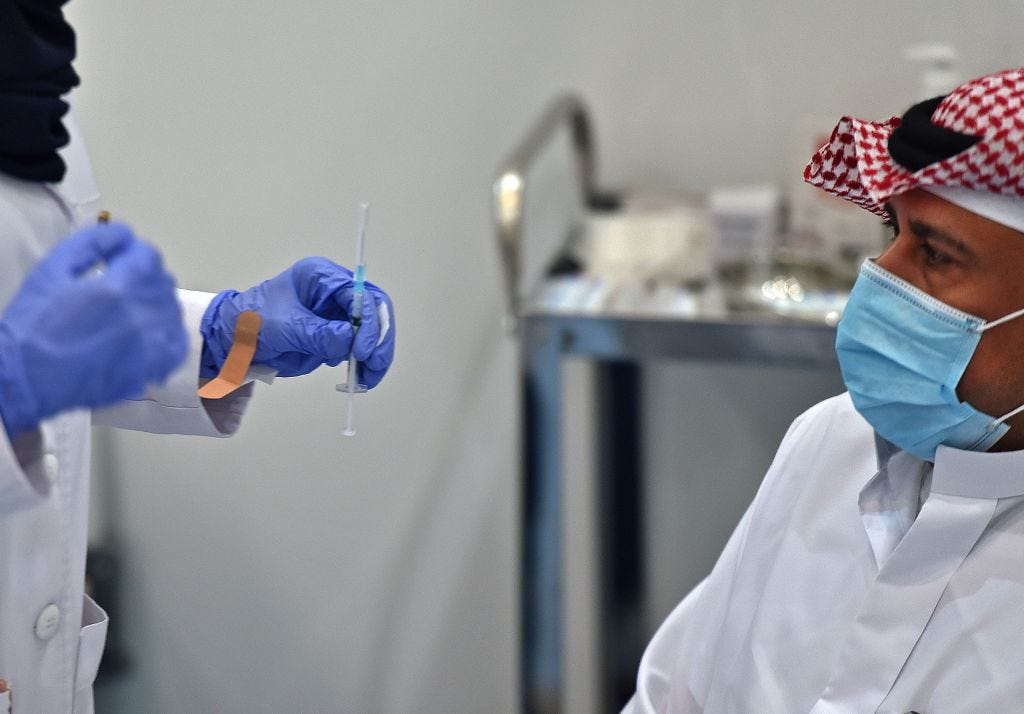Top Saudi lawyer jailed over Twitter libel
A prominent Saudi lawyer has begun serving a 60-day jail sentence after a court in Riyadh found him guilty of libelling a Snapchat influencer in a controversial case involving two social media personalities.
Sami al-Shibani, who runs a popular Snapchat account that promotes Saudi security forces, last year sued lawyer Abdulrahman al-Lahem for accusing him of racism for allegedly ignoring dark-skinned girls during his coverage of a friendly race for the children of fallen soldiers:
The video went viral, sparking debate on Twitter about racism and the role of social media influencers who have increasingly become a regular presence at events organised by government departments who seek to raise awareness among the public about their activities. As the video continued to circulate, Minister of Interior Prince Abdulaziz bin Saud bin Nayef ordered an investigation into the incident.
“An appreciated and unsurprising reaction from His Highness the interior minister and we would expect the investigation to include: who allowed this nobody to cover a security event and to call his account the ‘Security Snap’?” Lahem asked in a tweet posted in April 2019 (now deleted). “Is the Department of General Security short on media staff that they would bring a racist to cover their event? Has this racist been referred to public prosecution?”
The Ministry of Interior said its investigation concluded that it was an innocent “mistake,” adding that he “did not intend for this video to be seen as it was being interpreted.”
Shibani, who is not an MOI employee but appears to have strong connections to officers and enjoy special access to cover their raids and campaigns, has apologised in the aftermath of the controversy but decided to sue Lahem for libel. In addition to the jail term and a 10,000 riyals fine, he was also ordered to shut down his Twitter account after posting an apology and deleting the offending tweets. The apology must be pinned on the account for a week before shutting it down, the court decision said.
It was a dramatic turnaround for Lahem who has built a reputation in recent years for litigating against those who insult him on Twitter, including two public apologies by his opponents published in local newspapers. But this time he was ready to admit defeat. He tweeted an apology to the Snap influencer before opening a new Twitter account (which curiously says it was established in 2011).
“This is my new account,” he said in a 1-minute video posted Tuesday. “I will close my old account per the sentence issued by the criminal court in Riyadh and tomorrow I will implement the rest of the sentence which is the jail time.” He added that he feels at peace with accepting the court decision because he stood up for the two young black girls even if some thought his words were harsh.
Lahem is considered a rare celebrity lawyer in a country where legal minds rarely seek fame. He was first jailed in 2004 after representing three activists who called for a constitutional monarchy, and he was put under a travel ban for several years. He continued to take up cases other lawyers wouldn’t touch: defending two teachers accused of blasphemy, challenging the religious police in court and representing a Shia rape victim in the famous “Qatif Girl” case.
Human Rights Watch honoured him with their Human Rights Defender award in 2008. Here’s an excerpt from his acceptance speech:
This award is an acknowledgement of the hundreds of human rights activists in Saudi Arabia. It is also a recognition of the work of brave writers who have spoken against Islamist extremists and their calls for violence. Such writers have undertaken to expose those extremists and their false claims to the Saudi society. It is also an honor given to the great national figures who have sacrificed their freedom and their lives for the sake of their country and its people.
What a difference 12 years make. For those who have followed Lahem’s career, his transformation from plucky human rights lawyers to a complete government apologist has been nothing short of remarkable. The turning point came in the years that followed the Arab Spring. Its series of popular uprisings sent shockwaves across and the Middle East and changed people’s hearts in minds. For some, it was a spark that empowered them to protest and demand change. For others, it made them defensive and eager to hold on to what they have.
Lahem belongs to the second camp. He has emerged from that period as a fervent supporter of the status quo, and his pro-government tendencies became more pronounced as a wave of ultranationalism swept Saudi Arabia after 2015. Abu Khaled, as he is affectionately known, was one of the most active anti-Qatar voices when the Gulf crisis broke out two years later, and earlier this year he publicly expressed regret for taking high-profile human rights cases in the past.
The radical change in his politics is startling, but sadly it is far from unique as we have seen many similar cases not just in the kingdom but also in Egypt and other countries in the region. The counterrevolutionary tsunami has been strong and almost all-encompassing. That’s why this jail sentence is likely to be just a brief setback for the lawyer whose new Twitter account already boasts more followers than his original one. Expect him to return to menacing government critics and praising its reforms as soon as he is out.
Saudi Arabia suspends travel
Saudi Arabia announced on Sunday suspending all international passenger flights for at least one week in response to the news of a mutant coronavirus strain in the UK, but health minister Tawfiq al-Rabiah moved to reassure the public that this step was taken out of an abundance of caution to “assess the situation and understand more about this new variant.”
Meanwhile, the local vaccination campaign has continued, expanding from the capital Riyadh to reach Jeddah, with the Eastern Province expected to follow soon. But officials have expressed concerns about the number of women who signed up to take the vaccine, saying only a quarter of the 500,000 people registered so far were female. “We hope that more will register and trust the vaccine,” said Dr Sami al-Mudaraa, medical director for the ministry’s coronavirus vaccine programme.
The kingdom’s first phase of vaccination has used the Pfizer-BioNTech vaccine, but the health ministry said they are looking at other candidates for potential approval, including ones from China and Russia. Vaccines by AstraZeneca and Moderna are also under review, officials have previously said. Some people are worried that the other candidates have lower effectiveness than Pfizer and Moderna, but even if their effectiveness is around 70%, there is no reason not to take them. As economist Alex Tabarrok wrote earlier this week:
For the next year or two, we will be operating under conditions of scarcity and we need to use every tool at our disposal. A 70% effective vaccine is great, well above what the FDA required and better than the flu vaccine. If you live in a country in which everyone has been vaccinated you won’t give a damn whether they were vaccinated with a 95% effective vaccine or a 70% effective vaccine–both will give you nearly 100% safety and allow life to return to normal.
Correction: In the eighth paragraph of Wednesday’s newsletter, a sentence mistakenly listed Qatar instead of Egypt as one of the countries boycotting Qatar. The post has been updated to fix that. I apologise and regret the error. You can send your feedback by email to: alomran@hey.com or via Twitter: @ahmed



